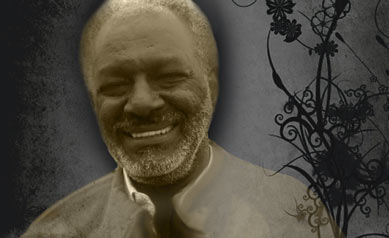Ethiopia: The Graveyard of Eritrean Opposition Movements

Abstract: This article examines the structural, historical, and geopolitical constraints that have undermined the Eritrean opposition’s ability to bring about meaningful political change. It argues that the reliance on host states such as Ethiopia and Sudan has delegitimized opposition movements in the eyes of the Eritrean people. The article proposes a shift away from failed alliances and toward a domestically anchored strategy focused on regaining trust, building internal networks, and putting Eritrean national interests above external dependencies.
Introduction
The need for a credible and effective Eritrean opposition is beyond question. At the center of this necessity lies President Isaias Afwerki—a man who, though once celebrated for his leadership in the armed struggle for Eritrean independence, has long since disqualified himself from leading a modern, peaceful, and prosperous nation. Whether through his own capability or through the collective strength of the EPLF during the liberation war, Eritreans once saw in Isaias the image of a founding father. But the decades since independence have laid bare the limits of his leadership. His regime has brought war, repression, and national humiliation. His speeches are now more often viewed with embarrassment than inspiration, riddled with simplistic analyses and idiosyncratic diatribes.
Over the last 34 years, Isaias has not only failed to build institutions, a constitution, or peace; he has also devastated the nation’s prospects, squandered its youth, and alienated it from the international community. His survival in power is not due to his strength but to the weakness and fragmentation of his opponents.
The Opposition’s Inertia
The Eritrean opposition, of which I count myself a part, has a thousand justifications for its existence but very little to show for its decades of work. Despite the moral and political clarity of its mission, it remains fragmented, marginalized, and—most troubling—irrelevant. While multiple factors contribute to this ineffectiveness, one stands out: the absence of a structural base of operations akin to the role Sahel played for the EPLF.
No successful liberation movement operates without a sanctuary. In the 1990s, the Eritrean Islamic Jihad Movement had support from Sudan’s ruling National Islamic Front and used it to operate in the western lowlands of Eritrea. But mainstream opposition groups—those rooted in secular, democratic, and nationalist ideologies—have had no such support. Sudan backed Islamists; Ethiopia, under the EPRDF, favored ethnic federalists. Eritrean opposition groups aligned with secular nationalism and pluralist democracy were squeezed out, unsupported by either neighbor.
Ethiopia: A False Promise
Of these two states, Ethiopia has had the more complex and damaging relationship with the Eritrean opposition. The EPRDF government and, later, the Abiy Ahmed administration, never offered neutral ground. Rather, support was transactional—calculated to serve Ethiopia’s strategic interests, not Eritrea’s democratic future. Abiy’s post-2018 alliance with Isaias, forged in secret and celebrated with Nobel prizes and performative peace declarations, never yielded real peace or institutional change. Isaias continued to wage war by other means, notably through Eritrea’s involvement in the Tigray conflict.
The Eritrean people, having endured Ethiopian imperialism, Derg brutality, and the long war of independence, do not trust movements headquartered in Addis Ababa. The perception, often justified, is that opposition groups based in Ethiopia are tools of a foreign state with a long history of seeking to dominate or dismantle Eritrea.
This is not mere paranoia. Ethiopia’s internal politics—marked by autocratic drift, ethnic conflict, and military adventurism—offer no model for Eritrea’s future. Aligning the Eritrean struggle with such a state discredits it and further alienates the very people it aims to liberate.
Redefining the Struggle
If the Eritrean opposition is to become relevant, it must reorient itself entirely. The era of symbolic coalitions and externally anchored movements must end. The opposition’s center of gravity must shift inward—toward the people of Eritrea. The long war for independence left the population fatigued. Most Eritreans do not wish to endure another multi-decade liberation effort. What they seek is dignity, peace, and prosperity. The opposition must present itself not as a mirror of the past but as a credible architect of the future.
Modern political change does not require vast armies or liberated zones. It requires information, intelligence, and public trust. These can only be built through meaningful engagement with Eritreans inside the country—through secure communication, moral clarity, and strategic patience. The road to Asmara today is through the mind and spirit of the Eritrean citizen, not through the backrooms of foreign capitals.
Letting Go of the Dead Weight
To achieve this, the opposition must also look inward. The traditional formulas of mergers, counter-mergers, and ritualistic alliances have failed. Political organizations that have produced no results in 34 years must be evaluated honestly. Membership in a group is not sacred. Organizations are tools, not ends in themselves. Results must rule.
The critical question for every activist, supporter, and leader is this: Has my affiliation with this organization or coalition advanced the goals it claims to pursue? If the answer is no, it is time to walk away. This is not defeat—it is wisdom. As the Islamic tradition of ṭalāq bi-thalātha (طلاق بالثلاثة) illustrates, when a declaration is repeated three times—”I divorce you, I divorce you, I divorce you”—the separation becomes final. In political terms, it is sometimes necessary to sever ties with entities that no longer serve the struggle. Just as in personal relationships, political disengagement can be an act of growth, not abandonment.
Political movements should not be prisons. Eritreans should not feel trapped by loyalty to failing structures. The mindset must change: What do the Eritrean people expect from us, and how do we deliver? That is the only measure of relevance.
Conclusion: A New Compass
The Eritrean opposition must now chart a bold new course. It must disentangle itself from the gravitational pull of Addis Ababa and Khartoum. It must stop seeking legitimacy in the eyes of foreign powers and start earning it from the Eritrean people. It must abandon stale ideologies, outdated alliances, and failed formulas. And most of all, it must believe in the agency, intelligence, and resilience of Eritreans themselves.
The road to Asmara does not run through Ethiopia. It runs through trust, truth, and tenacity. It begins by asking hard questions—and acting on the answers.




Awate Forum